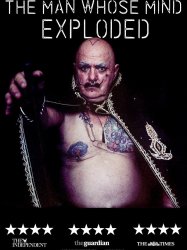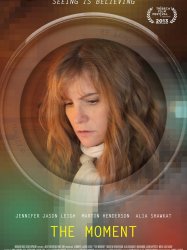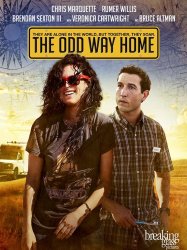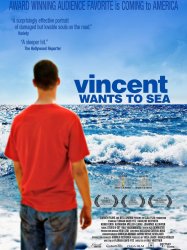Les films ayant le thème "Le handicap", triés par recette

Naache Mayuri (1985)
Réalisé par Rama Rao Tatineni
Genres Biographie
Thèmes Danse, Le handicap
Acteurs Sudha Chandran, Shekhar Suman, Aruna Irani, Dina Pathak, Sushma Seth, Satyen Kappu
Mayuri is a passionate Bharatanatyam classical dancer, who loses her leg in an accident, but fails to give up on dance. She receives a prosthetic Jaipur leg and learns to dance again, triumphs over her fate.
 , 38minutes
, 38minutesRéalisé par Daniel Junge
Origine Etats-Unis
Genres Documentaire
Thèmes Maladie, Le suicide, Documentaire historique, Documentaire sur la politique, Documentaire sur la santé, Folie, Le handicap, Politique

The Man Whose Mind Exploded (2014)
Genres Documentaire
Thèmes Maladie, Documentaire sur la santé, Folie, Le handicap
Drako Oho Zarharzar can remember modeling for Salvador Dali and hanging out with The Stones. But he can't remember yesterday. Following a severe head injury Drako has serious brain damage and terrible memory loss. He can access memories from before his accident, but can't imprint new ones. As he puts it, "the recording machine in my head doesn't work". As an antidote to depression he chose to live "completely in the now" according to the bizarre mottoes delivered to him whilst in his second coma. Living in a tiny flat completely filled with a collage of memories, reminders and erotic art Drako's house acts as a metaphor for his extraordinary mind.

One Little Pill (2014)
, 50minutesOrigine Etats-Unis
Genres Drame, Documentaire
Thèmes Alcoolisme, Maladie, Psychotrope, Documentaire sur la santé, Folie, Le handicap
Acteurs Claudia Christian
One Little Pill is a documentary film about The Sinclair Method of treating alcohol abuse. The film follows the lives of several people who have suffered from alcoholism, and have been helped by the treatment. Perspectives from scientists, treatment centers, doctors, and a legal prosecutor are also presented.

Unwilling Lovers (1977)
, 1h26Réalisé par Zebedy Colt
Origine Etats-Unis
Genres Horreur, Pornographique
Thèmes La famille, Sexualité, Le viol, Erotique, Sexploitation, Prostitution, La violence conjugale, Tueur en série, Le handicap
Acteurs C.J. Laing, Zebedy Colt, Annie Sprinkle
Agnes Benson, an elderly and paraplegic recluse, hires Jenny Merlin to care for her and her adult son, Timmy, a skilled mimic who has the mentality of a child due to witnessing the accident that crippled his mother, and killed his father. Not long after being hired by Mrs. Benson, Jenny has sex with the woman's handyman, Charlie. When Timmy catches the two of them together, Charlie tells him that he and Jenny were only "sunbathing". Timmy leaves to run an errand, and spots a couple having sex in the woods. When the man leaves to get cigarettes, Timmy approaches the woman, who panics and tries to run away, dying when she hits her head on a rock after being tripped by Timmy, who believes that they are playing a game. Oblivious to the woman's death, Timmy engages in intercourse with her body, and leaves when he hears the girl's boyfriend approaching.

The Moment (2013)
, 1h32Origine Etats-Unis
Genres Drame, Thriller
Thèmes Maladie, Folie, Le handicap
Acteurs Jennifer Jason Leigh, Martin Henderson, Alia Shawkat, Marianne Jean-Baptiste, Meat Loaf, Navid Negahban
Having previously broken up with her boyfriend John, photographer Lee returns to John's house to retrieve her cameras. There, she discovers mounting evidence that John has not been home for a long time. Worried, she contact the police, and Sergeant Goodman takes her report, though he suggests that John may simply not want to contact her. At an exhibition of her work, her daughter Jessie rebukes her efforts at reconciliation, and Lee mistakes a stranger for John. Haunted by her experiences in Somalia, Lee experiences mental breakdown and leaves the bathroom completely naked. Her ex-husband and daughter escort her out and have her committed to an upscale psychiatric hospital.

The Odd Way Home (2013)
, 1h27Origine Etats-Unis
Genres Drame
Thèmes Maladie, Folie, Le handicap, L'autisme
Acteurs Rumer Glenn Willis, Brendan Sexton III, Chris Marquette, Veronica Cartwright, Bruce Altman, Seth Adkins

Oxyana (2013)
, 1h17Origine Etats-Unis
Genres Documentaire
Thèmes Maladie, Psychotrope, Documentaire sur la santé, Folie, Le handicap
Oceana was once a coal mining town that prospered, but in recent years, has been faced with poverty and addiction.

Genres Documentaire
Thèmes L'adoption, L'enfance, La famille, Maladie, Le suicide, Documentaire sur le droit, Documentaire sur la santé, Folie, Le handicap

Avec nos yeux (2013)
, 1h31Origine France
Genres Documentaire
Thèmes Maladie, Le handicap, Personne sourde ou muette, Langue des signes, Langue des signes française, Langues et la traduction
Acteurs Emmanuelle Laborit, Chantal Liennel, Bachir Saïfi
Pendant plusieurs années, la réalisatrice suit le combat de la comédienne Emmanuelle Laborit et d'autres comédiens sourds de l'International Visual Theatre pour obtenir une vraie place de citoyens et d’artistes.
 , 2h22
, 2h22Réalisé par Laurent Bécue-Renard
Origine France
Genres Guerre, Documentaire
Thèmes Maladie, Documentaire sur la guerre, Documentaire historique, Documentaire sur la santé, Folie, Le handicap, Politique
Vétérans américains de la guerre d'Irak, une douzaine d'hommes restent traumatisés par la mort qu'ils ont vue, frôlée ou donnée. Dans un centre d'accueil en Californie, ils mènent une thérapie de groupe pour verbaliser les horreurs qui les hantent et se délivrer du stress post-traumatique.

Vincent, ses amis et sa mer (2010)
Origine Allemagne
Genres Drame, Comédie dramatique
Thèmes Maladie, Psychologie, Transport, Automobile, Folie, Le handicap, Road movie, Hôpital psychiatrique
Acteurs Florian David Fitz, Karoline Herfurth, Katharina Müller-Elmau, Heino Ferch, Tim Seyfi
Vincent, un jeune homme souffrant du syndrome de la Tourette qui vient de perdre sa mère, est placé dans un institut par son père, un politicien autoritaire. Là, vincent fait la connaissance de Marie, une anorexique, et d'Alexandre, animé d'un trouble obsessionnel compulsif. À trois, ils vont voler la voiture de la directrice de l'établissement, le Dr Rose, et rouler vers Trieste en Italie, où Vincent s'est promis de jeter en mer les cendres de sa mère.
 , 1h30
, 1h30Réalisé par Stina Werenfels
Origine Suisse
Genres Drame, Romance
Thèmes Maladie, Le handicap
Acteurs Inga Busch
Alors que sa mère décide de ne plus lui administrer de médicaments, Dora, jeune handicapée mentale de dix-huit ans, commence à s’épanouir. Mais quand Dora découvre sa sexualité, sa lutte pour son indépendance devient de plus en plus risquée. Au grand dam de sa mère, Dora a une relation sexuelle spontanée avec un homme ambigu, évidemment épris de cette sensualité décomplexée.

Le Mur (2011)
, 52minutesRéalisé par Sophie Robert
Origine France
Genres Documentaire
Thèmes Maladie, Psychologie, Documentaire sur la santé, Folie, Le handicap, Psychanalyse, L'autisme
Le Mur est un documentaire réalisé en 2011 par Sophie Robert et produit par la société Océan Invisible Productions, en partenariat avec Autistes sans frontières, une association qui milite en faveur d’une prise en charge comportementale éducative des personnes autistes et contre la prise en charge psychanalytique.

Le moindre geste (1971)
Genres Drame, Documentaire
Thèmes L'enfance, Maladie, Psychologie, Documentaire sur le droit, Documentaire sur la maltraitance des enfants, Folie, Le handicap, L'autisme, Maltraitance des enfants
Yves est considéré par l’institution hospitalière comme « inéducable et irrécupérable ». Pris en charge en 1958 par Fernand Deligny, éducateur singulier dont les tentatives de cures libres refusaient l’ordinaire des méthodes psychiatriques, Yves devient en 1962 le personnage central d’un film tourné dans les Cévennes. Yves et Richard s’évadent de l’asile. En se cachant, Richard tombe dans un trou. La fille d’un ouvrier de la carrière proche observe Yves resté seul et le ramène à l’asile.
 Connexion
Connexion